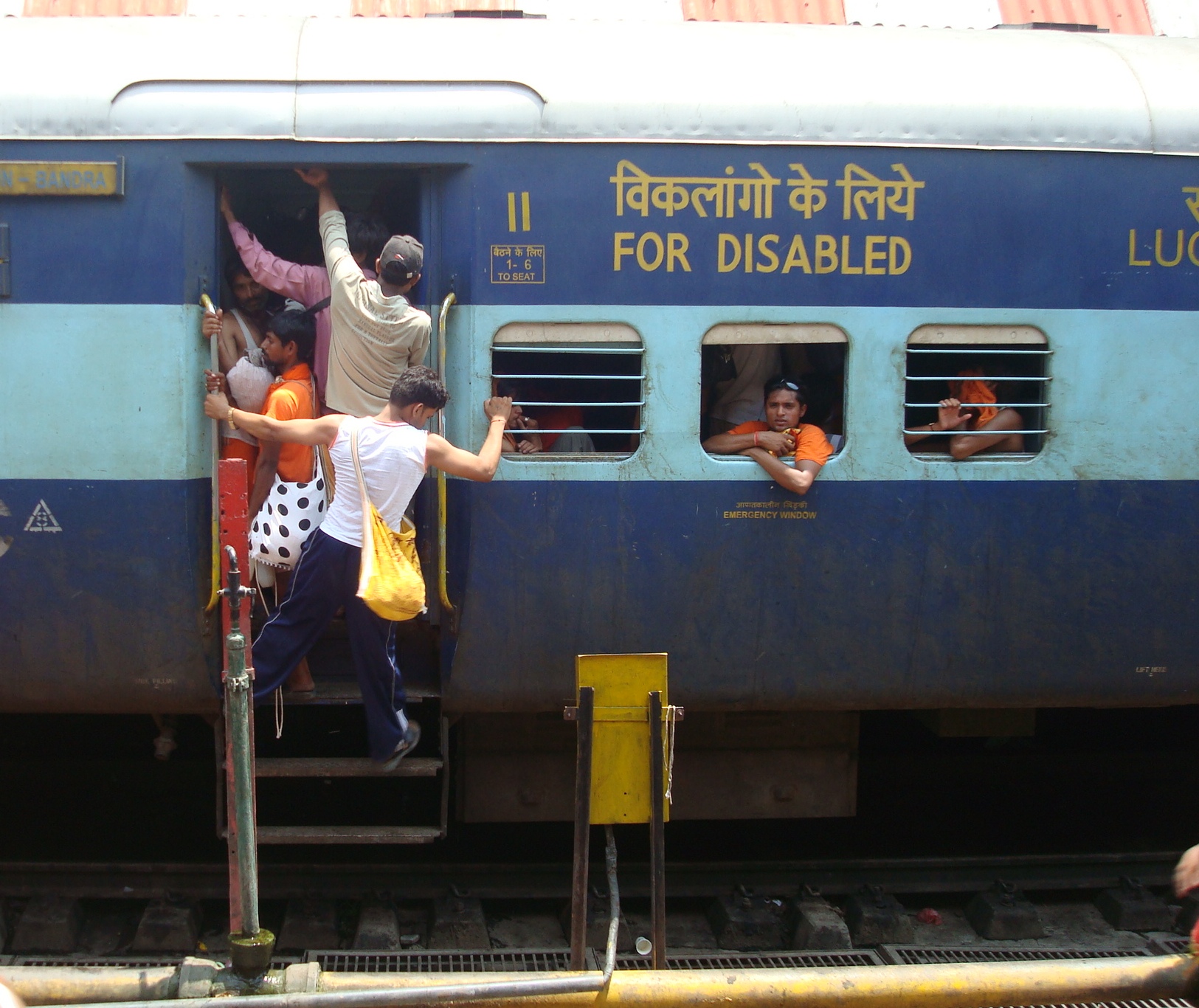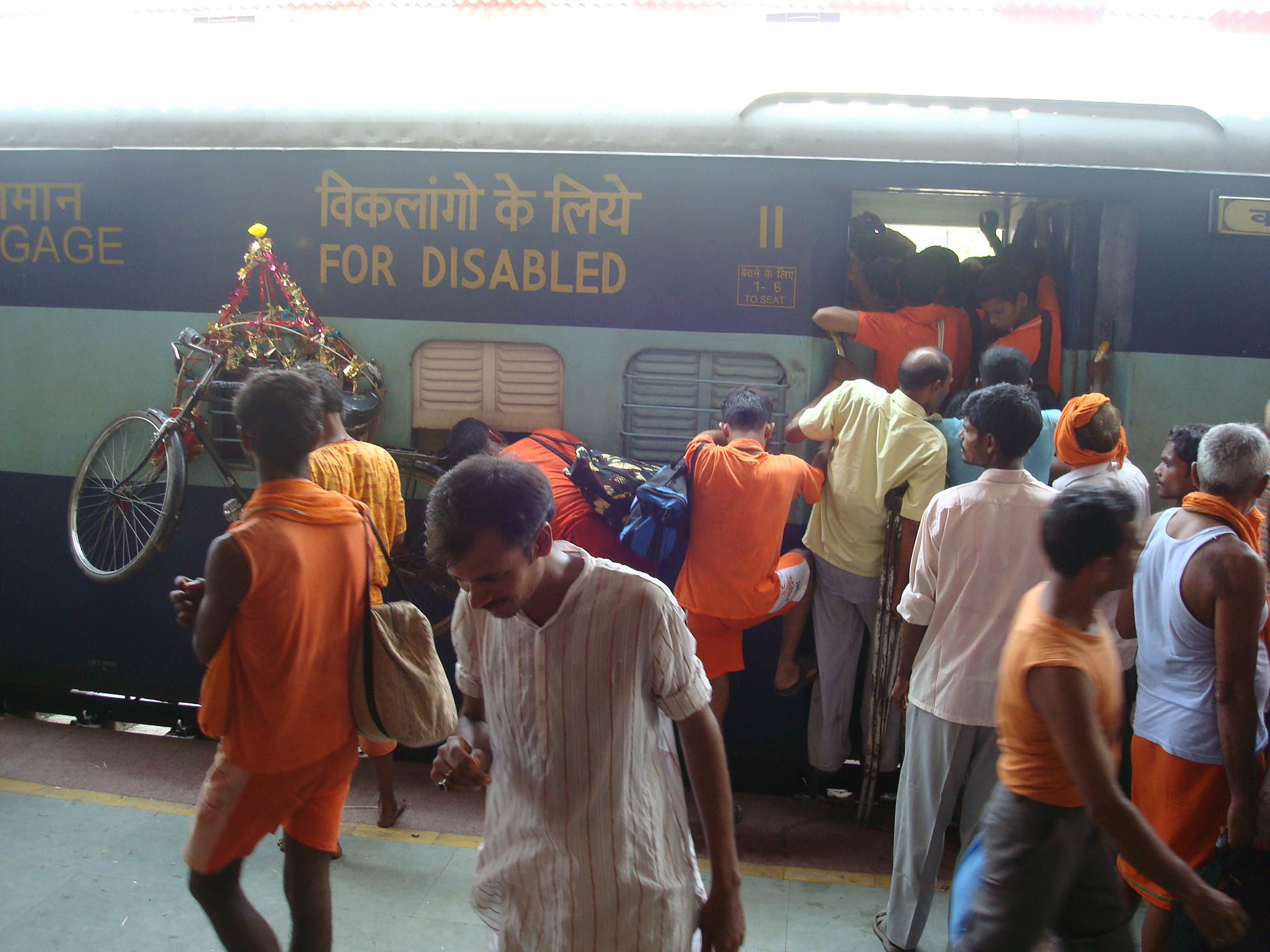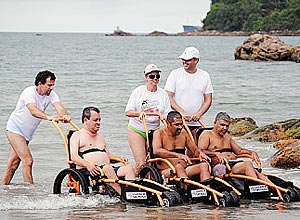Dear Colleagues,
Please recall my earlier post when Govt. of India invited proposals from States to give central assistance to provide barrier free environment in important State Government buildings in the State Secretariat, Collectorates, Main Hospitals, Universities and other important Government offices to ensure that these are accessible to the Persons with Disabilities (PwDs) under the ‘Scheme for Implementation of PwD Act, 1995 (SIPDA),’ after effecting a major increase in the annual allocation (Rs 15 crore-Rs 20 crore to Rs 100 crore) this year.
However, this again has found very few takers. This indicates two factors – which continue this vicious circle of inaccessibility. First is the lip service by the Government – both at the centre and the states- second is the “We can not do much” attitude of Persons with Disabilities, their organisations, DPOs/ NGOs and parent’s organisation.
We have found a similar lukewarm response to an earlier scheme for promotion of employment by which the government offered to pay a certain sum for Provident Fund contribution for the employee with disabilities.
Disability is not a priority area for the government – both at centre as well as at States, since they are grappling with much more serious subjects (seriousness is judged from the perspective of how adversely the segment may affect the voting patterns in the elections!). Therefore, after the lip service in form of schemes, nothing much comes out in absence of concerted effort on the part of NGOs/ Disabled Persons Organisations and Confederations. I remember similar story appearing in the Times of India on 07 November 2010 titled Challenge for the disabled when the new Disability Commissioner took over. However, not much has happened since then.
Barrier Free environment is your fundamental right for it is essential to enjoy “Right to Life” as enshrined in the Constitution of India and eloquently spelt out by the Hon’ble Supreme Court of India in its various path-breaking judgements.
Therefore, it is high time that Confederations, NGOs, DPOs who claim to work with and for persons with disabilities in India and as well as disabled people in this country to raise voice through different mediums – representations, dharnas, sit-ins outside the Minister’s office/residences, petitions in the Disability Commissioner’s court, Writ petitions in the High Courts, and every possible way which is democratic and lawful. I am sorry to say, without this, we will have similar news stories every six months explaining the pathetic conditions of inaccessible pedestrian pathways and inaccessible public spaces and transportation systems.
Here is this story from Times of India, Pune Edition dated 01st March 2012:
Barrier-free buildings a distant dream for disabled
PUNE: Makrand Vaidya, who walks with the help of crutches, feels intimidated when he has to visit government offices in the city, because of their limiting environment.
“I have visited so many government offices here and none are disabled-friendly. My wife, who is on a wheel-chair, feels the same. My condition is such that I cannot use the crutches for an extended period of time. So, when government offices do not have ramps or a lift, I have to climb up a flight of stairs by sitting on every step to rest before moving forward. Situations like that not only drain my energy, but also my confidence,” said Vaidya.
A visually-impaired student, who declined to be named, said, “There aren’t any staff to guide the people with disabilities (PwDs) who visit government offices. More often than not, staff at government offices tend to misguide you by giving you wrong directions and partial information. Inquiry booths for PwDs at all government offices are indispensible. Lack of such facilities only delay our errands further.”
The fact that the Pune Disability Commissioner’s office has not received adequate number of applications from the state government departments seeking grants to make their offices barrier-free, shows the disinterest in making public buildings disabled-friendly.
The Union government had sought proposals for Rs 12 crore from the states, to make required changes in the office premises of state departments and make them better accessible to physically-challenged people.
Though the deadline to send the applications is already over, the Disability Commissioner’s office here has received applications seeking funds to the tune of just Rs 8.5 crore so far. What’s more, the Pune divisional commissioner’s office and the Pune Zilla Parishad, which were specially asked to send their requirements for grants under the scheme, are yet to respond.
Proposals from states have been invited by the Ministry of Social Justice and Empowerment under the ‘Scheme for Implementation of PwD Act, 1995 (SIPDA),’ after effecting a major increase in the annual allocation (Rs 15 crore-Rs 20 crore to Rs 100 crore) this year.
Officials from the disability commissioner’s office had made a presentation to various state government departments, including Pune Zilla Parishad and the divisional commissioner’s office, to encourage them to submit proposals for making provisions for barrier-free environment in their respective buildings.
“However, no proposal has been received from the zilla parishad and the divisional commissioner’s office, and we are still seeking to fulfil the shortfall of Rs 3.5 crore,” said an official from the Disability Commissioner’s office.
The UN Convention on the Rights of Persons with Disabilities (PwDs), 2008, to which India is a signatory, calls for making buildings, work places, facilities including information, communication and other services, etc, accessible to PwDs on an equal basis. In addition, section 46 of Persons with Disabilities (Equal Opportunities, Protection of Rights and Full Participation) Act, 1995, makes implementation of barrier-free environment for PwDs everywhere, especially government buildings.
The official said, “However, in spite of the legislation, people are unaware of what exactly is a barrier-free environment. Only a ramp and a toilet on the ground floor do not amount to the structure being barrier-free. Thus, central assistance on significant scale under the SIPDA is provided to states to encourage them to move in the direction of making their buildings totally barrier-free.”
He said the disability commissioner’s office authorities have focused on providing at least four features in the government buildings that have hitherto submitted applications. “A ramp, toilets on all the floors for the disabled, signage boards for the hearing-impaired and a lift (for buildings where ramp does not go beyond two floors) are barrier-free features which will have to be added in the buildings mandatorily,” he said.
The official said the disability commissioner’s office had asked the state health department for proposals from eight civil hospitals from eight regions of the state. “We, however, have not received any applications from the health department,” said the official.
The disability commissioners’ office had also asked the higher education department to send proposals to make their websites accessible to PwDs and institutions environment barrier-free. However, only five universities and 11 directorate offices from the state have sent proposals within the time limit.
The official further added that Amravati district collector, Mumbai university and divisional commissioner, Mumbai, have also not sent applications. “Mahatma Phule Krishi Vidyapeeth, Rahuri, has given a proposal to the tune of Rs 3 crore, Rs 76 lakh for making four of its buildings barrier-free. Others who have sent the proposals include North Maharashtra University, Jalgaon, SNDT University, Mumbai, and Nagpur Veterinary College,” the official said.
Dananjay Bhole, co-ordinator, Blind Students Learning Centre, University of Pune (UoP), said, “I have been working at the UoP for the last couple of years and was also a student earlier. For me, mobility on the campus has not been a hindrance because I have been here for some time now. But, initially, I faced several problems here since there wasn’t any cell to help physically challenged people. With increasing awareness UoP has taken initiatives to make its environment more disabled-friendly. The new buildings on the campus can be easily accessed by physically challenged people. Access to old buildings is difficult for wheelchair users as there are no inclined ramps installed at the entrance to the buildings.
Source: Times of India, Pune Edition



